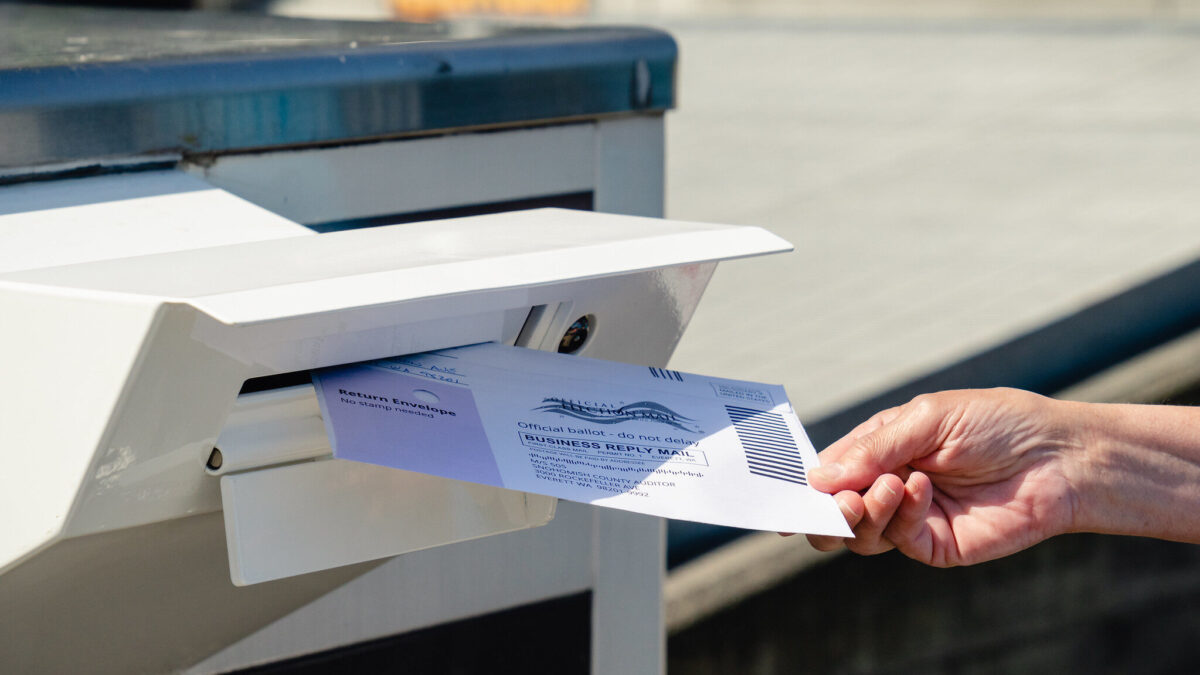In 2020, the Texas Public Policy Foundation (TPPF), along with writers at The Federalist, had their social media posts flagged, suppressed, and even censored by a government-nonprofit-industry taskforce supposedly designed to combat election “misinformation” from foreign powers.
Instead, this unconstitutional effort, which was started under the Trump administration’s Department of Homeland Security, almost exclusively targeted conservatives, rarely the left, and almost never Russia, China, or other hostile powers. Shockingly, the Department of Homeland Security’s Cybersecurity and Infrastructure Agency and Stanford Internet Observatory’s Election Integrity Partnership (EIP) — the former a government agency, the latter funded by the government — both asked Twitter to remove a tweet by President Donald Trump.
In my own case, my government — which exists to secure liberty — supported a system that took in a ticket from the Democratic National Committee (DNC) about a policy paper I authored on the weaknesses of mail-in balloting. TPPF posted my paper on Facebook and Twitter a month before the 2020 election, noting, “Voting by mail has become increasingly popular in Texas, but it has serious shortcomings that make it vulnerable to fraud while putting legitimate ballots at risk.”
The next day, the DNC flagged our post and my paper to the EIP. In response, an EIP analyst wrote: “the FB [Facebook] post’s text is not necessarily false, but the link to the webpage does contain false/misleading information. … [We] recommend keeping an eye on TPPF for other misleading or false reports.”
Our webpage summary of my report contained no false or misleading information, contrary to the assertion of the unknown EIP government-funded analyst, likely a college student with no real-world experience or specific expertise in election administration.
I certainly understand that the DNC and hired guns like Marc Elias see mail-in balloting as a key component to their electoral strategy — and have for more than a decade prior to Covid-19’s upending of America in early 2020. But to use the government itself to attempt to shut down any discussion of the relative merits of voting processes and safeguards causes more, not less, alarm among the public as to the honesty of our elections.
Election Protection Project
Fortunately, the public’s instinctive understanding of the importance of free and fair elections remains strong. This support has allowed TPPF to redouble its efforts at reinforcing our nation’s elections. Since 2017, we’ve conducted research and developed recommendations to improve Texas’ election code. But now we’ve significantly expanded our ambit with a team of experts focused on key urban counties in five swing states and Texas, focused on upholding election integrity via the Election Protection Project.
At the heart of the Election Protection Project’s philosophy is a trifold definition of election integrity: It demands that the identity of voters is verified, their eligibility confirmed, and their votes securely collected and accurately counted. By espousing these principles, the project aligns with a vision of an electoral system that operates with precision and reliability, commanding the confidence of the electorate.
Flaws in the System
The tumultuous nature of recent elections, particularly the 2020 presidential race, showcased the critical need for attention to election administration. Changes implemented rapidly and under politically charged circumstances — for instance, using lawfare tactics to launch sue-and-settle cases against amenable urban jurisdictions — led to an atmosphere of confusion and eroded trust in the electoral process.
Challenges in the 2020 elections — ranging from equipment malfunctions to the exclusion of bipartisan observers — highlighted widespread systemic issues. Far from being anomalies, these occurrences revealed vulnerabilities within a cumbersome and inefficient election bureaucracy. Our project’s mission, therefore, is to identify and promote best practices that ensure the integrity and security of the voting process.
Instilling Trust
The project diligently engages in compiling in-depth research on county and state election practices, aiming to illuminate best practices and encourage their adoption nationwide. Through vigilant monitoring of county-level election procedures across various states, the project seeks to foster uniform standards of electoral administration that can withstand scrutiny and instill trust among voters.
In a political climate where the sanctity of each vote is imperative to the legitimacy of democracy, TPPF’s Election Protection Project aims to transcend partisan lines, focusing squarely on the bedrock principle of election integrity. Its mission is not to sway the scales of political outcomes but to reinforce the foundations of democratic engagement through the electoral process — to ensure that persistent issues of electoral integrity do not go unchallenged and that the democratic process remains robust and respected.
Of course, it remains to be seen if the Biden administration and its friends in Silicon Valley will view any legitimate concern over election administration as worthy of being allowed to be discussed in the public square.
Editor’s note: This story has been updated.








